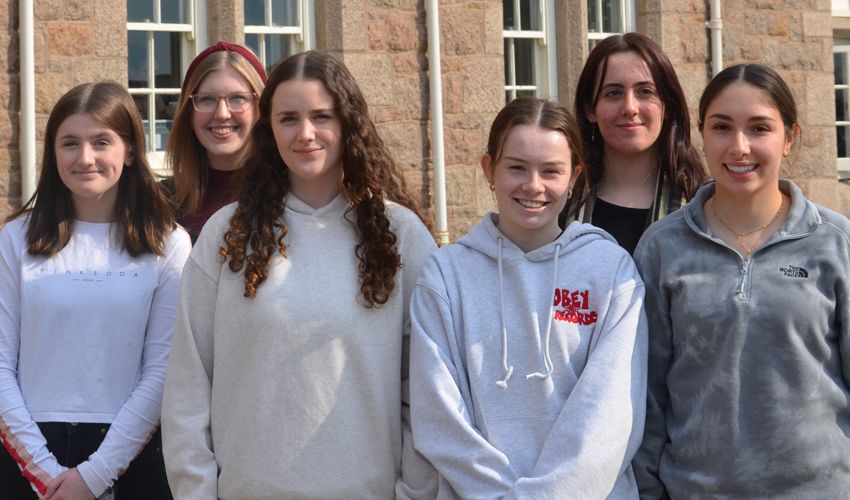

Jersey College for Girls will be marking Neurodiversity Celebration Week from Monday 13th to Friday 17th March with a series of events.
Neurodiversity Celebration week is a worldwide initiative that challenges stereotypes and misconceptions about neurological differences.
The College’s participation in the event was driven by Neurodiversity 101, an enrichment group that involves seven of our students from Year 12, some of whom are neurodivergent.
“As the group is largely neurotypical, we feel that this elective has been a valuable learning experience as we’ve learnt to support those around us, no matter their differences,” the students explained.
“From a neurodiverse point of view, this elective has been great to understand more about ourselves and find out more ways we can look after ourselves. It has been fascinating to learn about neurodiversity.”
Katherine Grant, Music Teacher at JCG who leads the enrichment group, first suggested the idea of the awareness week and the students worked with her to plan a series of events to help raise awareness of neurodiversity within the College and the wider community.
Students in Year 7, 8 and 9 will be invited to take part in a poster competition, which was designed to help them learn more about neurodiversity.
There will be two assemblies focusing on neurodiversity during the week, one for students in Year 7 to 11 and one for students in the Sixth Form.
Autism Jersey has been invited to hold a stall on Tuesday 14th March to provide information about autism and signposting to other services. They will be bringing their virtual reality goggles so that students and staff can experience what it might be like to be autistic in a busy environment.
They will also be sharing volunteering opportunities with students in the Sixth Form.
On Thursday 20th April, parents from the College and the whole island are invited to JCG for an information evening about neurodiversity, to hear from teachers, carers, charities and people who have a diagnosis.
“This week is meant to be a celebration of neurodiversity so that students know they can feel confident with any of these diagnoses and how best to support friends and family members who might be neurodivergent,” Mrs Grant explained. “Girls tend to be the hidden element of neurodiversity, it’s less explored, and they cope, they mask, they get on. There’s an important value in discussing neurodiversity with young girls as it’s an important part of the mental health problems girls face in the school context.”
Here is what our students said about what being neurodiverse means to them:
“I very often am doing multiple things at the same time. Its just how I work. I am not able to focus on one thing and complete it first before moving onto the next.”
“Living as an autistic is like playing a game where everyone else knows and understands the rules but me.”
“I can really empathise and understand what struggles other autistic people go through. On the other hand, I can’t read subtext so I worry about social relationships and formulating friendships, it can be really challenging in the respect that I don’t know if I am insulting other people.”
“I find it quite isolating being with other people and like I don’t fit in, and that people view me differently or as ‘weird’.”